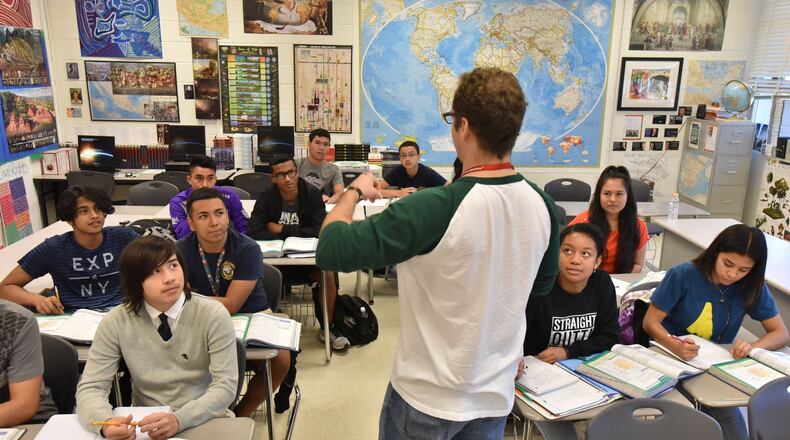DeKalb County School District officials say a new curriculum will establish an intense instructional road map while providing opportunities to adjust during individual units to keep a pace that all children can follow.
The plan was presented during the school board's monthly meeting Monday. Several teachers and administrators who worked on the curriculum commented they felt it would go a long way to serve the needs of all students.
"We wanted to ensure our new version provided a more detailed road map, with an opportunity for us to be explicit about pacing ... with components to help identify where children are (in the lesson) more readily so we're able to provide intervention if needed," said Lisa Martin, the district's chief academic and accountability officer.
The curriculum was designed by school district employees in collaboration with Houghton Mifflin Harcourt, which produces a large number of text books for classroom instruction.
“This is intense and exciting work for us, by us, created by many of our own colleagues in the district,” Superintendent Steve Green said during Monday’s presentation.
District officials said about 88 teams of 228 teachers created 564 units of instruction that will be implemented for the 2017-2018 school year.
The curriculum is aligned with the Georgia Standards of Excellence in language arts, mathematics, science and social studies. According to the curriculum guides, coursework also will be offered to develop the whole child, not just from an academic standpoint.
For third-grade language arts, there is a focus on foundational reading skills where the students evolve from reading to understanding text, as well as making statements with more sophisticated writing.
THE CURRICULUM MANAGEMENT PROCESS: HOW IT WOULD WORK
- Phase I -- Analysis (Year I): Research and review standards alignment, resources and best practices. Analyze data and identify strategies to improve.
- Phase II -- Development (Year I): Review, revise and/or write curriculum for select content areas. Adoption by the Board of Education.
- Phase III -- Implementation (Year II): Ongoing professional development.
- Phase IV -- Evaluation (Year II): Feedback from stakeholders including teachers, parents/guardians and students. Review and revise curriculum based on feedback and data analysis.
- Phase V -- Implementation (Year III): Ongoing professional development (focus on revised curriculum units).
Source: DeKalb County Schools
About the Author
Keep Reading
The Latest
Featured


